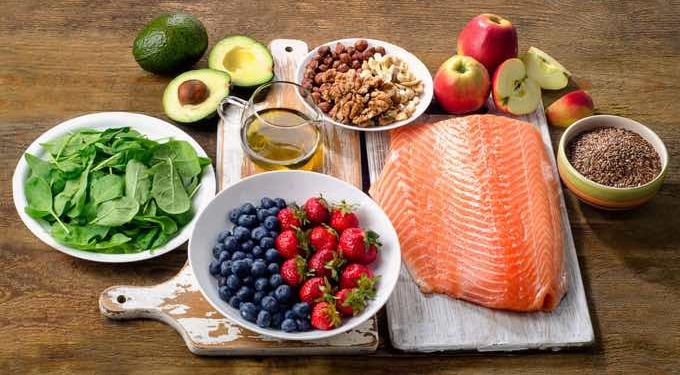
Source: Mercola.com
The U.S. and the world around are in the midst of an obesity epidemic that seems to have no end. One reason we keep gaining weight is because we’re tempted to buy fast foods and ready-to-eat items that ease the work of preparation under the guise of being cheaper.
But are these quick-and-easy foods really cheaper? The Independent points out that, in the long run, cheap foods aren’t so inexpensive after all. Pound for pound, penny for penny, when you measure quality and quantity, it actually costs less to eat healthy than it does to grab those to-go foods. Here are six ways to eat healthy for less:
1. Don’t be fooled by expensive, premade “superfoods” — You can make your own smoothies and yogurts quite easily, and for far less cost, with fresh fruits, veggies and seeds.
2. Avoid processed foods — It’s true: As with many dishes, it’s cheaper to make your own pasta sauce than it is to buy the jar waiting for you at the store. Likewise, those handy, ready-to-eat packs of meats, cheeses and crackers not only are less filling, but are far more expensive than putting together a healthy plate of similar, whole, organic foods.
3. Cook your own meals — Processed foods may be convenient, but they will not necessarily save you money — especially not if you count the cost of added health care expenses down the road when a poor diet starts catching up with you.
In terms of long-term disease-prevention, cooking from scratch using fresh unprocessed ingredients is perhaps your best guarantee to getting and staying healthy. Research also shows that home cooking tends to result in reduced calorie consumption. People who ate the most home-cooked meals wound up consuming about 130 fewer calories daily, on average.
4. Shop the perimeters of the store — By doing this, you automatically avoid many of the processed foods that cost more in both money and health.
5. Cut back on protein and increase your veggie purchases — There's no doubt that high-quality protein is an important part of any diet, including an antiaging one, but the truth is protein is one of the most expensive parts of most people's diets.
For instance, price differences per serving for healthier versus less healthy foods are largest among meats/proteins. As far as inexpensive, high-quality protein goes, organic free-range eggs are one of your best options, as is fish.
6. Choose healthy fats and avoid low-fat anything — Fats are an essential part of your diet, and if you choose the right ones they will help you feel fuller, longer. However, not all fats are created equal. So, how do you know you're eating healthy, high-quality fat?
To begin with, avoid vegetable oils, which can decimate your health in more ways than one. vegetable oils are bad for your brain health for a number of reasons, including the following:
• They are loaded with damaged omega-6 fatty acids without protective antioxidants
• They strip your liver of glutathione, which produces antioxidant enzymes, which further lowers your antioxidant defenses
• Most vegetable oils are made with genetically engineered crops designed to resist herbicides like glyphosate. As such, they're typically far more contaminated with glyphosate than non-GE crops, and glyphosate has been shown to disrupt the tight junctions in your gut and increase penetration of foreign invaders, especially heated proteins, which can cause allergies.
On the other hand, your brain and cardiovascular system need healthy fats. Good fats include olive oil, walnuts, seeds, fatty fish like anchovies and Alaskan salmon, coconut oil and avocados, to name a few. And the good news is that healthy fats will fill you up and keep you feeling fuller, longer.















